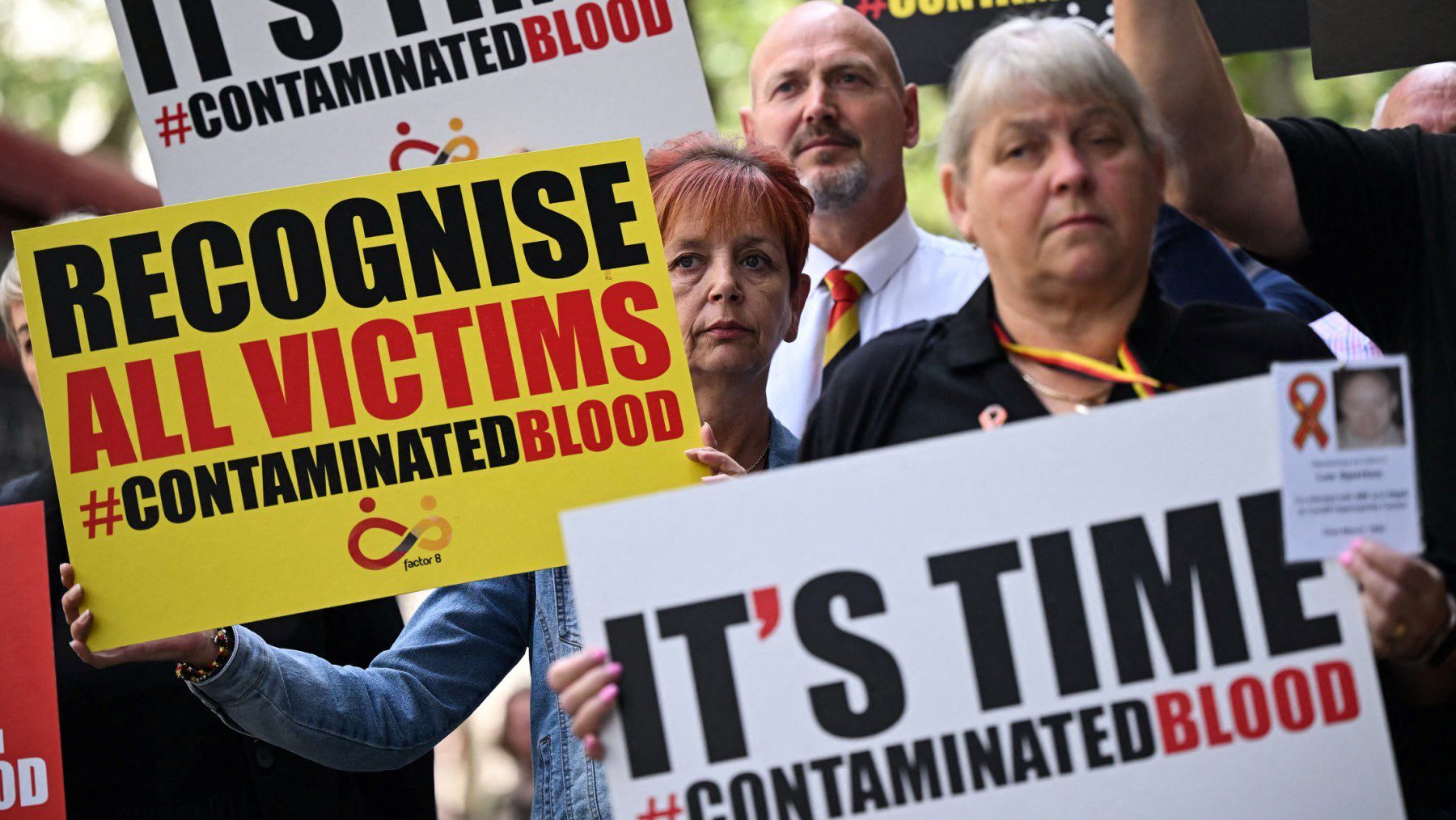
Demonstrators hold placards reading message related to the NHS infected blood scandal as Britain’s Prime Minister Rishi Sunak is questioned by Infected Blood Inquiry, in London, on July 26, 2023.
Photo: JUSTIN TALLIS / AFP
A report scheduled for release Monday, May 20th, is set to lay bare a decades-long scandal in which thousands of people died after being treated with infected blood.
Tens of thousands of hospital patients were infected with viruses such as HIV and hepatitis after being given contaminated blood products between the 1970s and early 1990s, the report from the Infected Blood Inquiry is expected to conclude.
On Tuesday, the British government is expected to follow up by announcing a compensation package worth several billion pounds for victims and their families.
Victims include those who received blood transfusions for accidents and in surgery, as well as those suffering from existing blood disorders, such as haemophilia, who were then treated with donated blood plasma products.
Around 3,000 people are believed to have died, while many others were left with lifelong health problems.
Des Collins, senior partner at Collins Solicitors, which represents 1,500 people who were either infected or who lost loved ones, told The Times the importance of the report “cannot be overestimated”:
What the twice-delayed final inquiry report means to this community is nigh on inconceivable to describe. Monday is their day of truth. They will finally achieve recognition of all they have experienced and will learn, as a matter of public record, how and why the infected blood scandal occurred.
The report’s findings will undoubtedly be all the more poignant as they follow years of denials, obfuscation and downright refusals to acknowledge mistakes made at a personal, institutional and governmental level.
Former prime minister Theresa May launched the inquiry, one of the country’s largest, in 2017.
Inquiry chairman Brian Langstaff has previously said that “wrongs were done at individual, collective, and systemic levels”.
His report is expected to criticise politicians, health officials and institutions.
It is not yet known whether anyone will be prosecuted over the scandal, but lawyers have asked the inquiry to “pass all relevant evidence to prosecuting authorities in the four nations [of the United Kingdom] to allow them to independently consider whether criminal proceedings should be brought.”
Campaigners said Monday was the culmination of a decades-long struggle.
“We feel emotional at the moment in the sense that it’s like a 40-year-old fight, and it’s coming to an end and we’ve come to the end of our energy levels,” said Suresh Vaghela, 61.
He received a contaminated blood product while being treated for haemophilia when he was around 13 years old, and was infected with both HIV and hepatitis C.